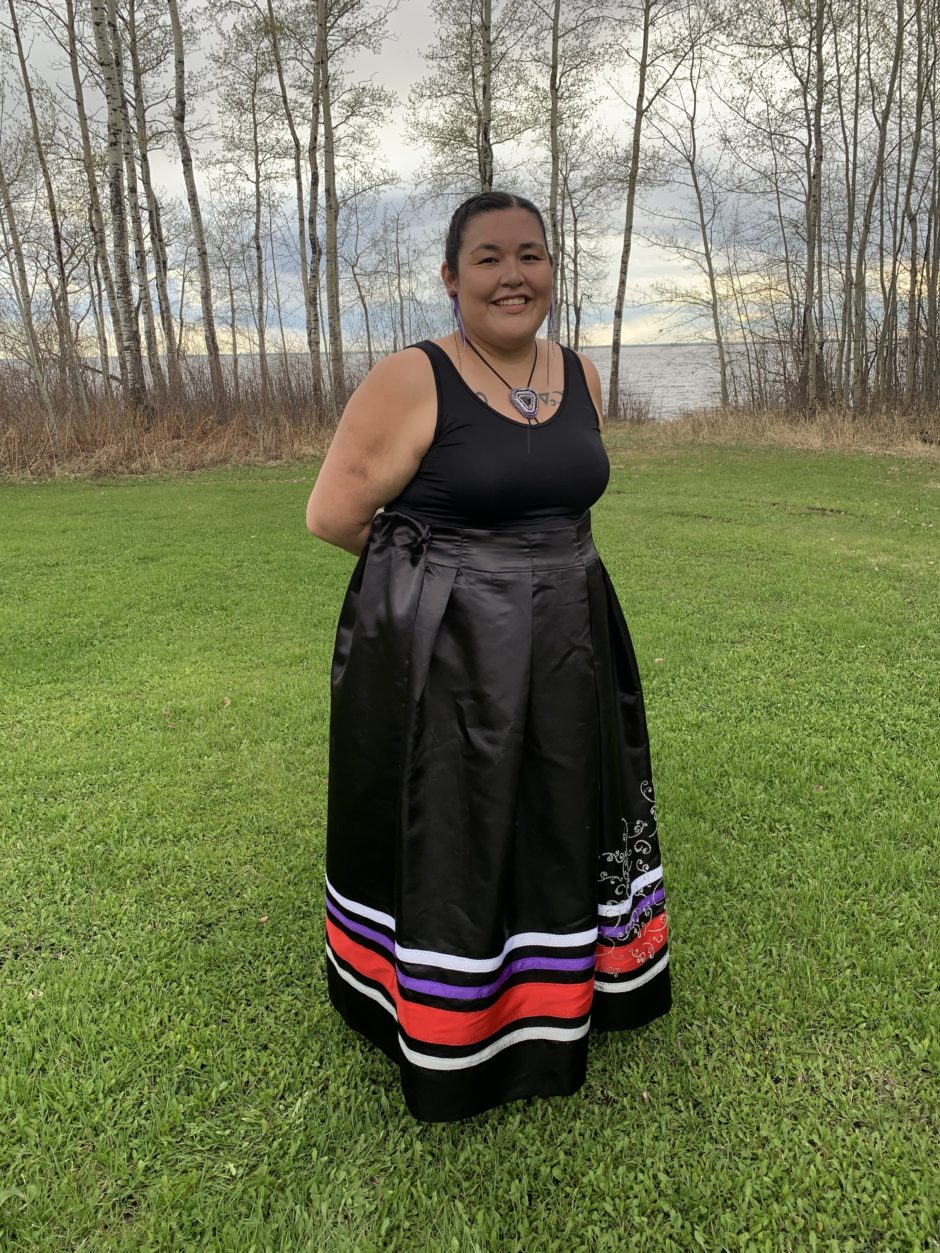June 7, 2020
Cora and Farris Lemaigre are making history on their Dene reserve in northern Saskatchewan.
The cousins were just hired to teach at the K-12 school on Clearwater River Dene Nation in the fall, becoming the first former students to return as certified teachers with a bachelor of education degree.
Even more remarkable is that the women earned their university degrees on the remote reserve and in their traditional Dene language.
It’s unlikely that Cora and Farris would have become teachers if not for the Dene Teacher Education Program (DTEP) through the First Nations University of Canada, a federated college of the University of Regina. It trained 21 students from northern Saskatchewan to be teachers without having to leave their northern communities and with free tuition between 2016 and 2020.
“I was scared,” Cora said. “I’ve always been in and around Dene people, barely speaking English.”
Cora was raised by her grandparents, who only spoke Dene with her, and rarely travelled south to the city. So the prospect of moving south to Saskatoon or Regina for four years, as northerners had always been required to do in order to take a university program entirely in English, was too daunting.
And for Farris, it was simply too expensive.
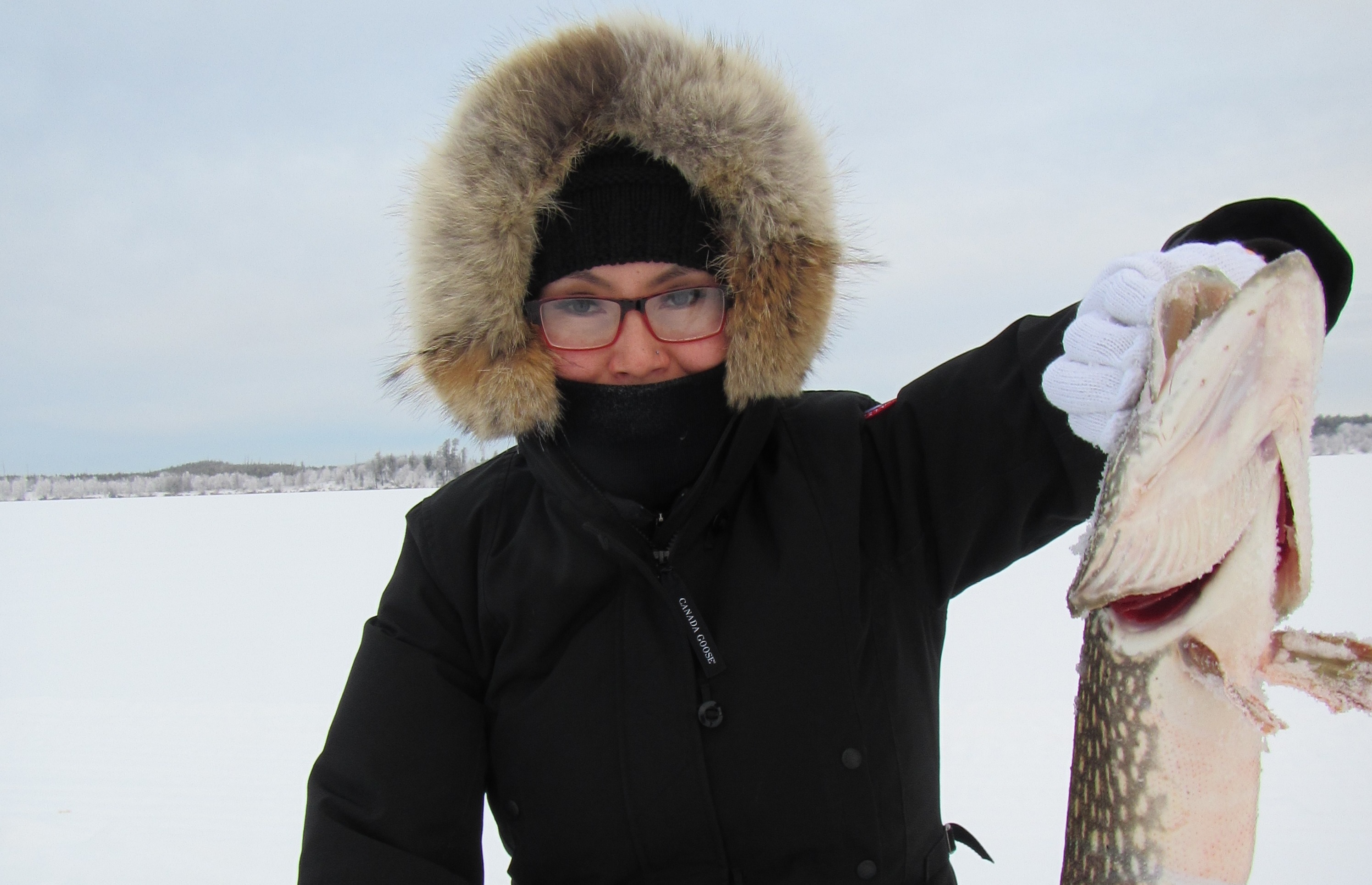
But the purpose of DTEP isn’t just to provide a more comfortable, more affordable way for northern students to learn; it’s to empower and strengthen the Dene people, culture and language.
Farris couldn’t speak her traditional language before she started. She felt ashamed.
Now she’s fluent. All of the teaching grads can speak, read and write Dene.
“I’m proud. I feel like I’ve found myself more — like it’s more of my identity,” Farris said. “I’m more comfortable in my own skin now, just being able to identify as a Dene woman.”
Yet, it took a horrific tragedy that made international headlines to galvanize the political will and public money to make the teaching program happen.
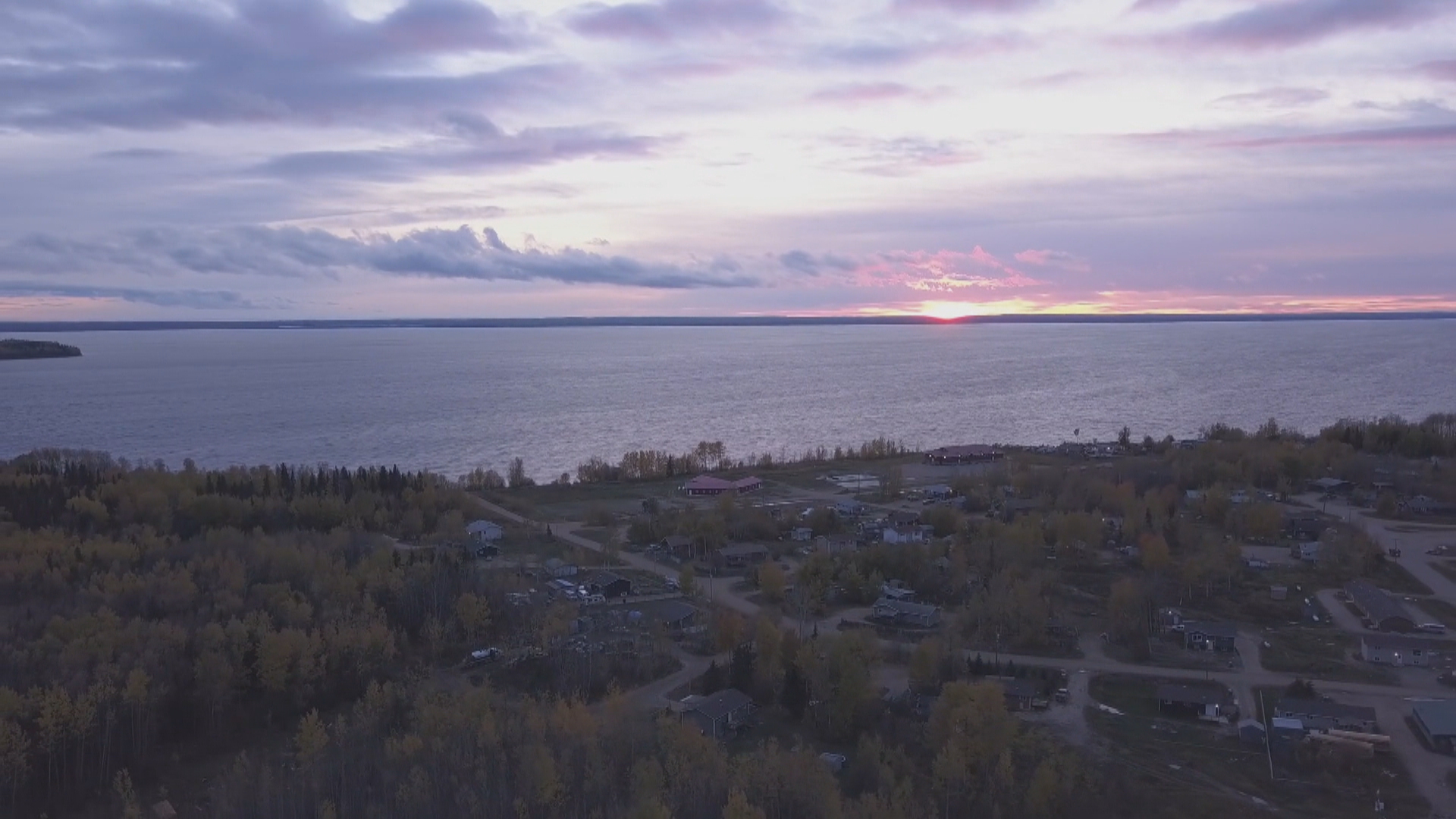
The headlines aren’t often kind to the Clearwater River Dene Nation and its neighbour, the Indigenous village of La Loche, located 600 kilometres northwest of Saskatoon.
The two Dene communities, with a combined population of about 3,500, are nestled in the boreal forest along the eastern shore of Lac La Loche. People frequently move back and forth between the First Nation reserve and village.
The Indigenous communities have received a lot of news coverage in recent weeks for being the epicentre of Saskatchewan’s most troubling outbreak of COVID-19. Leaders have been blunt that people dealing with alcohol and drug addictions have violated physical distancing restrictions and fuelled infections.
TV news outlets had to dig into their archives to find footage from the region and found themselves re-airing snowy video from January 2016 when La Loche last made the news in a significant way. That’s when a high school student went on a shooting rampage that killed four people and injured seven others in one of Canada’s worst school shootings.
At that time, the northwestern region’s long-standing struggles with suicide, joblessness and violence were dredged up and discussed for weeks in the national media.
So it’s understandable that many in the area felt disappointed that the pandemic has overshadowed the DTEP graduation and cancelled a large community feast.
It was a much-anticipated celebration. One that was decades in the making.
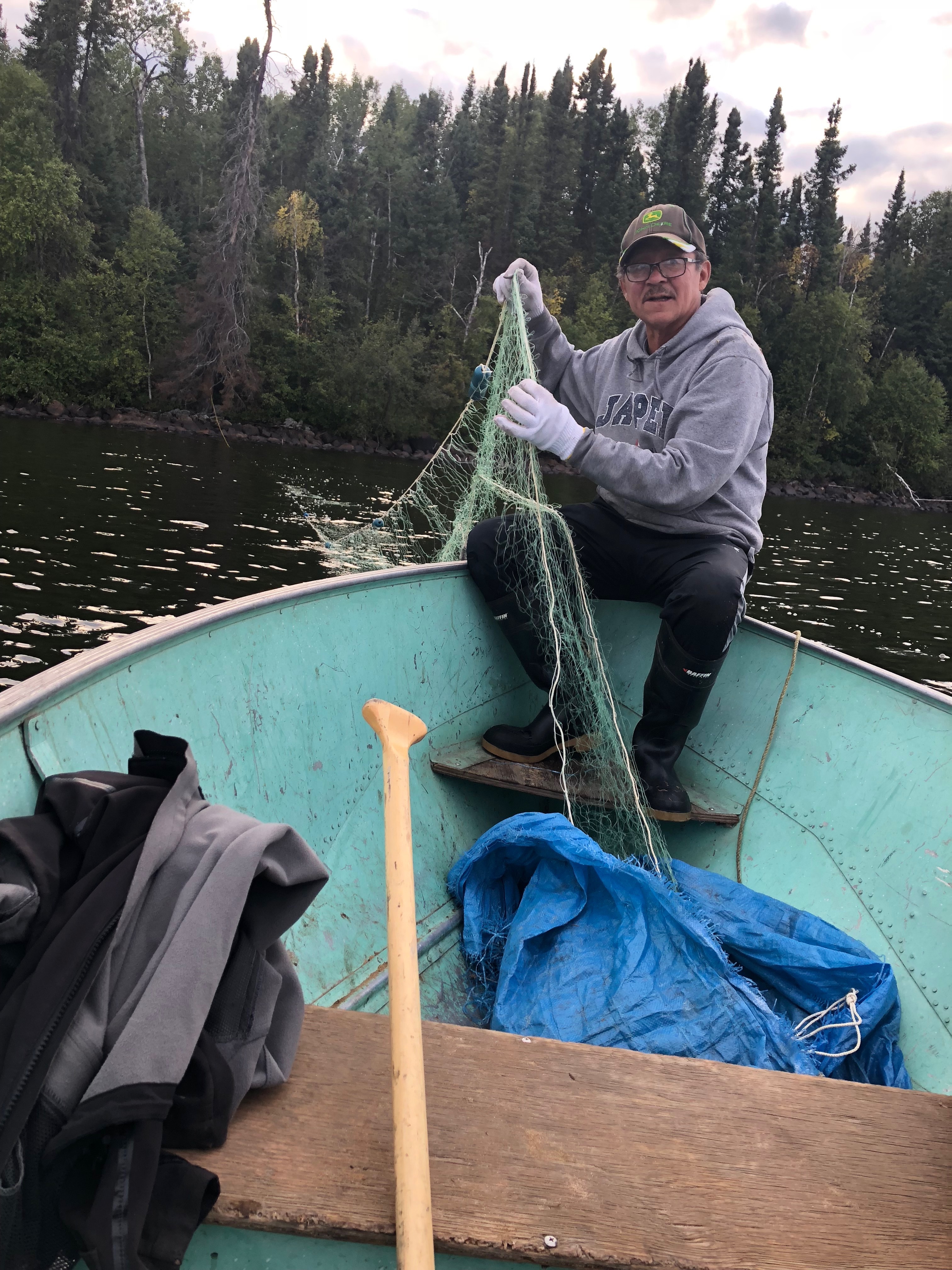
It was 30 years ago that a rookie teacher from Regina moved north in his search for some classroom experience and adventure.
Mark Klein taught at both the elementary and high school in La Loche. He fell in love with the land and the people, including a Dene woman who would become his wife.
Klein’s wife, Trudy, is fluent in the Dene language, as are their grown children; Klein humbly said he still struggles to string together a few words.
“It’s a really hard language to learn. The verb structure is incredible. If somebody asks you to put something away, there are 27 ways to tell you to do that depending on what you’re putting away,” Klein said, with a chuckle.
But while he may not speak it, he respects the traditional language and its connection to the culture and identity of those he loves.
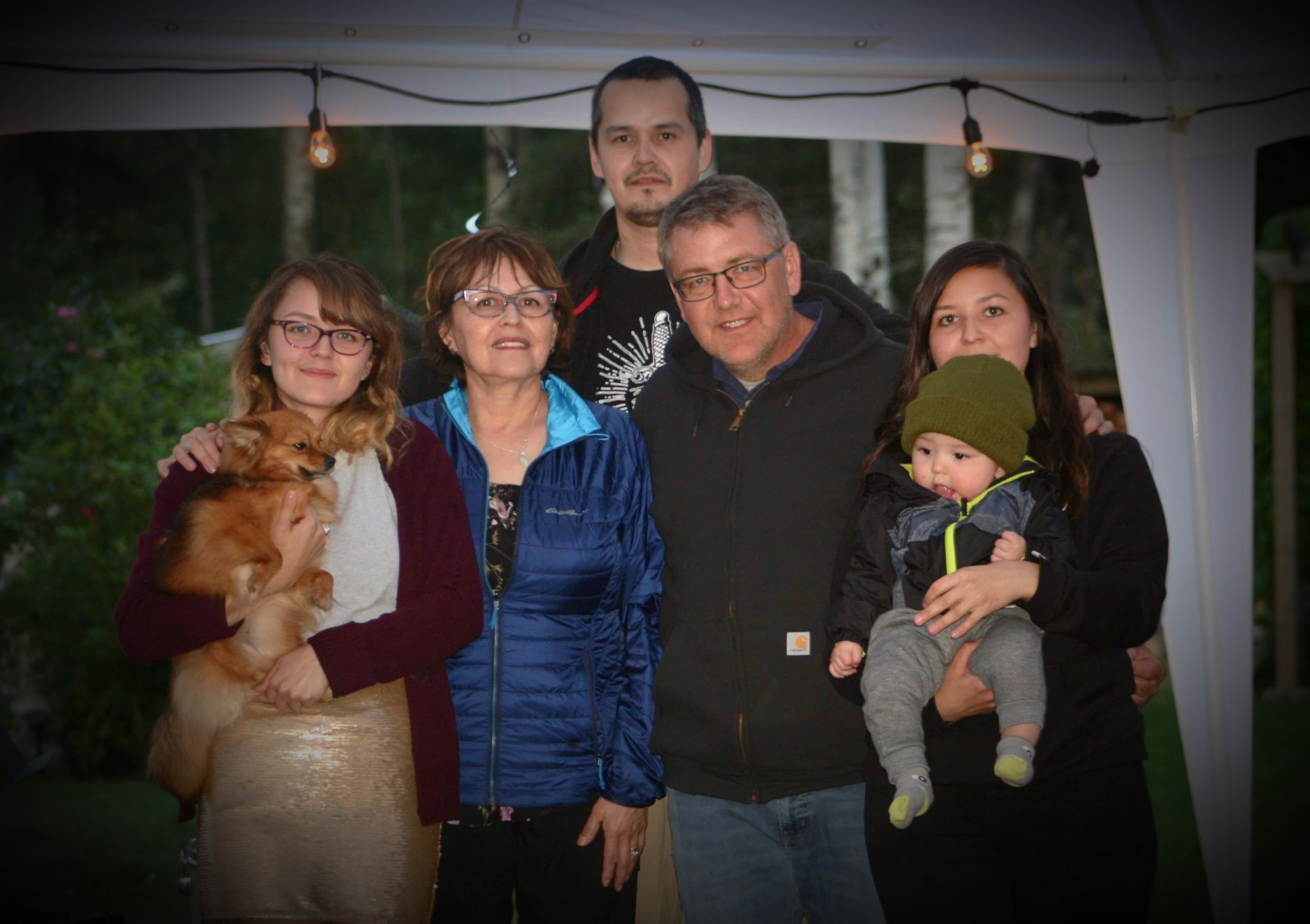
Across Canada, Indigenous languages are fading away. The Dene language, also known as Denesuliné, has remained relatively strong in La Loche and Clearwater River Dene Nation, where more than 80 per cent of people listed Dene as their mother tongue in Statistics Canada’s 2016 census.
However, community leaders are worried about the other 20 per cent, who are under the age of 12, and what it means for the future.
Klein said he’s noticed a disturbing “language shift” in the past decade.
“You’ll see adults speaking to each other in Dene and to their parents, but for some reason, the younger generation of parents will speak English to their children,” said Klein, the principal of Clearwater River School and the First Nation’s director of education.
Klein said it’s up to schools to fill in the gaps.
In 2007, he launched an ambitious immersion program that starts preschool students with 100 per cent Dene instruction, then slowly introduces English over the years. High school students can take at least an hour of Dene instruction each day.
But, he finds it challenging to staff because most of Clearwater River School’s teachers aren’t fluent in Dene, and he struggles to recruit teachers who speak, read and write the language.
So, Klein started to dream up a solution.
“I just thought, ‘Let’s think about this for a second,’” Klein said. “If we did run an education program here, isn’t it easier for one professor to come teach in La Loche for three weeks, instead of 25 people moving to Saskatoon, getting apartments, getting their kids into school, worrying about parking and all the other hassles that come with living in the city?”
Klein held his first community meeting in the dead of winter in December 2015. There was a lot of interest and support in the north, he said, but he wasn’t optimistic that government and university officials in the south would be as enthusiastic.
Then, a month later, a Grade 10 student went on his rampage at the high school in La Loche, and everything changed.
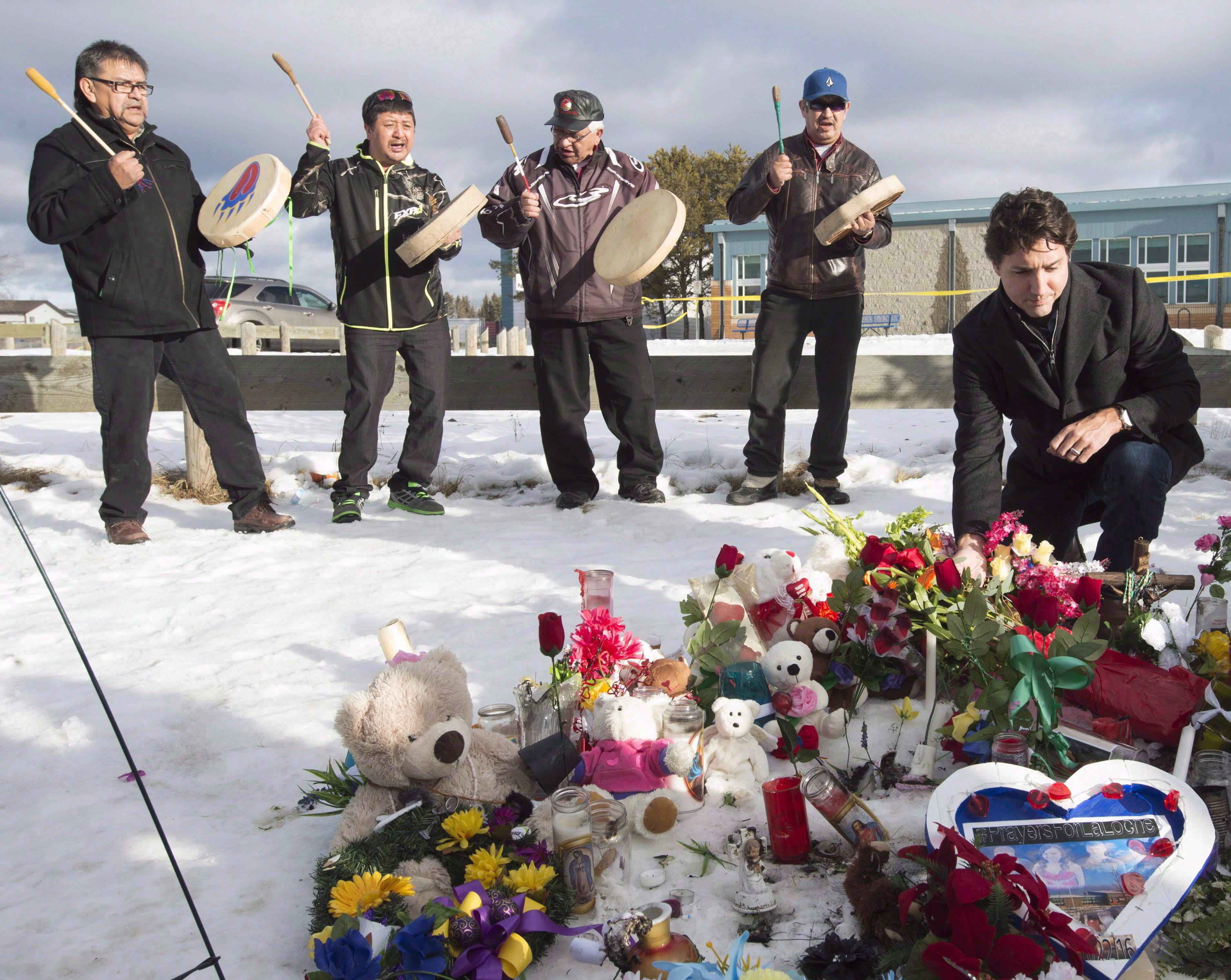
It was Jan. 22, 2016. The 17-year-old murdered his two cousins then drove to Dene High School where he shot and killed two more people and wounded seven others.
Prime Minister Justin Trudeau landed in the remote village a week later and told reporters that Ottawa would provide long-term support, “not just now through the difficult time but in the weeks, months and indeed years to come as we look to grieve, heal and move beyond and thrive in the years to come.”
Klein realized it was now or never to get the teaching program off the ground.
“With the shooting, I think governments felt obliged to help out,” he said.
The government of Saskatchewan agreed to cover half of the $125,000 yearly expense. A news release at the time applauded the program as a way to preserve culture, foster pride in the community, retain students in school and help local people secure jobs.
The other half of the money would come from the federal government, the Northern Lights School Division and the Clearwater River Dene Nation.
Next, Klein had to recruit students.
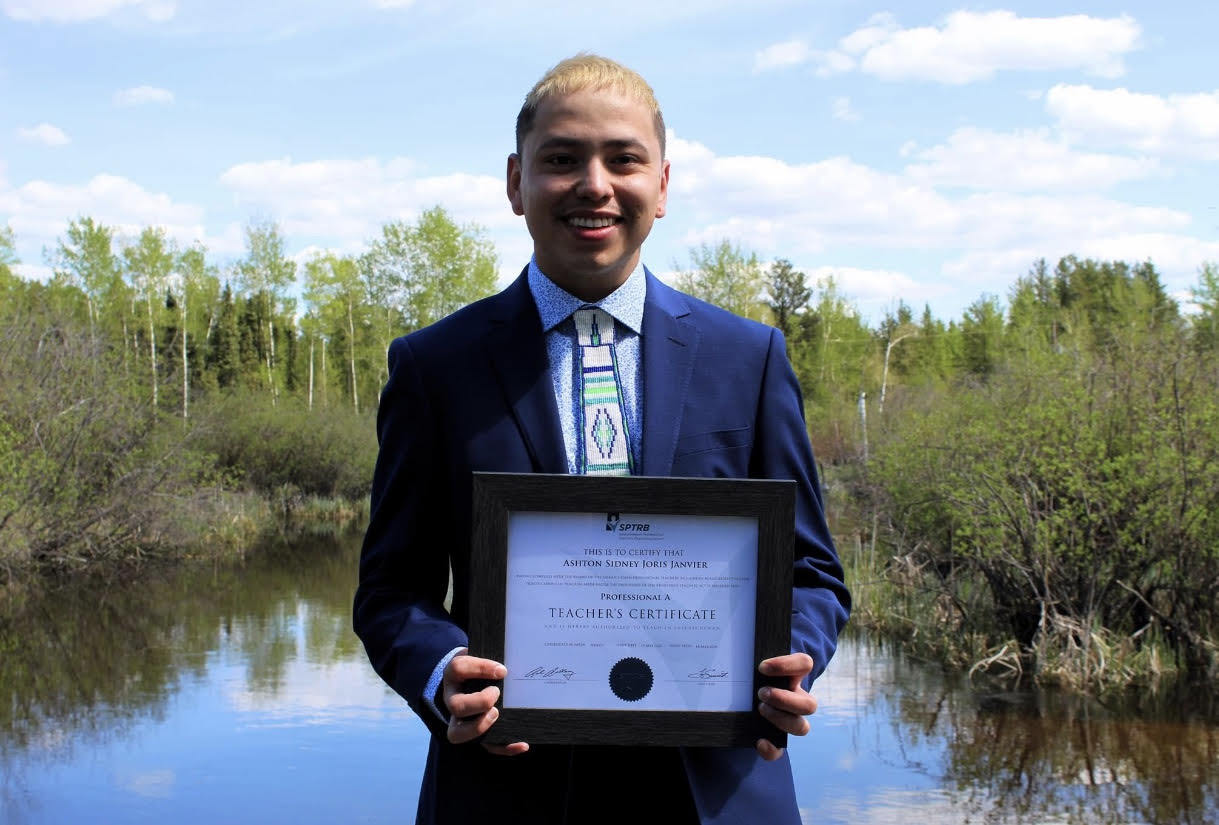
Ashton Janvier was working in an oilfield near Fort McMurray, Alta., 100 kilometres west of La Loche, when the 2016 forest fire forced a widespread evacuation, destroying thousands of homes and temporarily shutting down some oilsands operations. Janvier returned home to live with his mother in La Loche with no idea what the future would hold.
He heard a radio ad for the DTEP program and decided it was an opportunity too good to pass up.
“I took the chance and a year into my program, I knew I wanted to help people through education,” said Janvier, 28.
Rena Lemaigre, a distant cousin to Cora and Farris, was also searching for her purpose in life. She didn’t have a job or a stable place to live in 2016. She was tempted to turn to alcohol, even though she’d discovered long ago how it could disrupt her life.
“I was feeling lost. I didn't know where to go, and I was kind of sad and depressed at the same time,” said Rena, 34.
She knew she had a passion for teaching, but never felt the confidence to pursue it as a career. Then, a friend nudged her to apply to the DTEP.
Starting the program was one thing; finishing was another. Rena was homeless, couch-surfing from one relative’s house to another. She didn’t have her own vehicle and had to rely on classmates for rides.
Thirty-two students were initially enrolled in the fall semester in 2016, and 21 finished. Klein said it’s a 65 per cent graduation rate, which he believes is significantly higher than the graduation rate for Indigenous students on city campuses.
Rena didn’t drop out because she knew her 13-year-old daughter, who attended school in the same building as her, was watching.
“I want her to feel proud of me, and I didn’t want to have any regrets,” she said.
Rena has discovered a new sense of confidence and pride.
“I feel like me. Like, I mean, I feel good and like, I’m doing what I’m supposed to be doing,” she said.
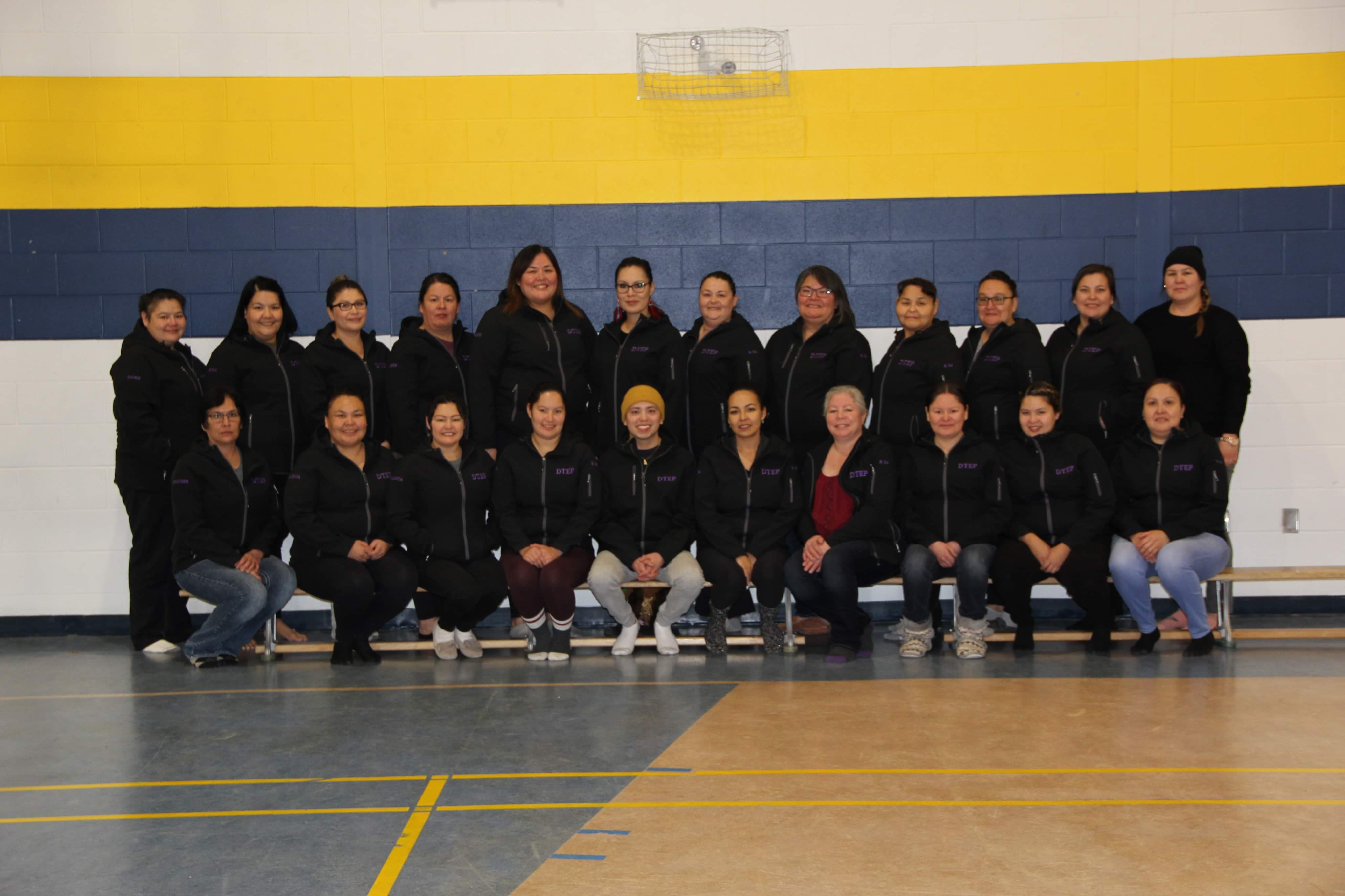
The DTEP taught all the usual classes for a University of Regina bachelor of education degree but replaced six elective courses with Dene linguistic and culture classes. Students went out on the land, spoke to elders and spent time fishing, trapping, snaring rabbits and collecting medicinal plants. Dene speakers tutored and mentored them.
Klein said it was “a community effort.”
As of June 4, 18 of the 21 grads had found teaching jobs for the fall. Some are moving to other Dene communities in northern Saskatchewan and northern British Columbia where the Dene language is disappearing.
The DTEP will wait a few years before it trains another cohort.
“These programs should be running right across the country, in terms of language revitalization,” said Klein, adding that traditional languages aren’t going to “magically reappear.”
“To really get languages back into communities, it’s going to have to happen at the school level.… Hopefully, if we do our jobs well enough, it will go back to the homes.”
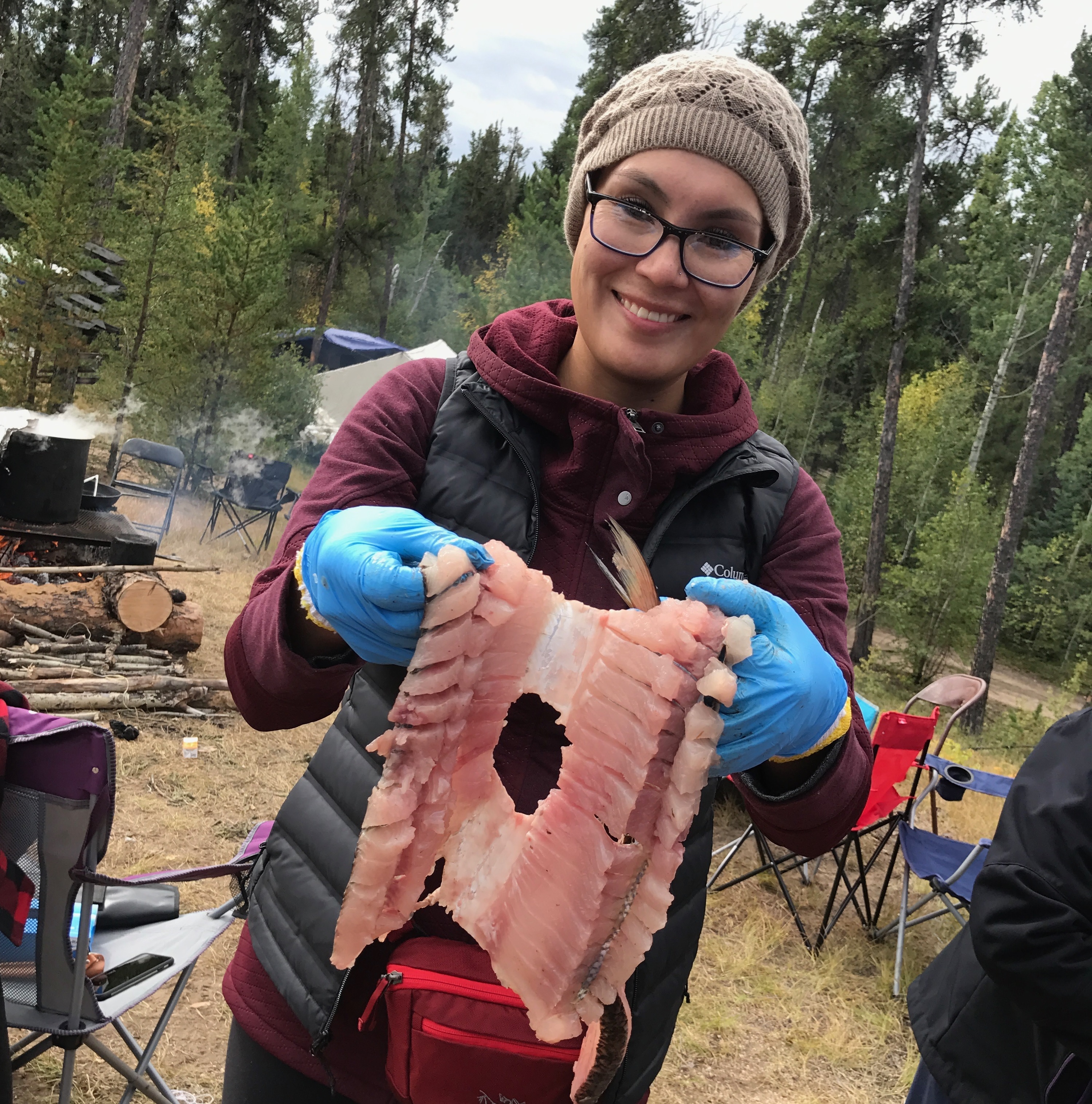
Cousins Cora and Farris both feel a deep sense of pride and appreciation for their new role in the community. Cora will be teaching physical education, while Farris takes on math.
But more importantly, at 34, they are language keepers.
They are responsible for carrying Dene forward to the next generations.
They will teach the humour and culture that are entwined with the language.
“I’ve accomplished one of the best milestones you can accomplish in life,” Farris said. “And now, I’m just going to flourish.”
She will teach others that it’s never too late to learn.
“Growing up, it was always that comment, ‘Oh, you're Dene. You have to speak the language.’ But I couldn't. I understand what kids are going through, and I feel like I could encourage them when they're trying to learn the language, because I've been in their shoes."
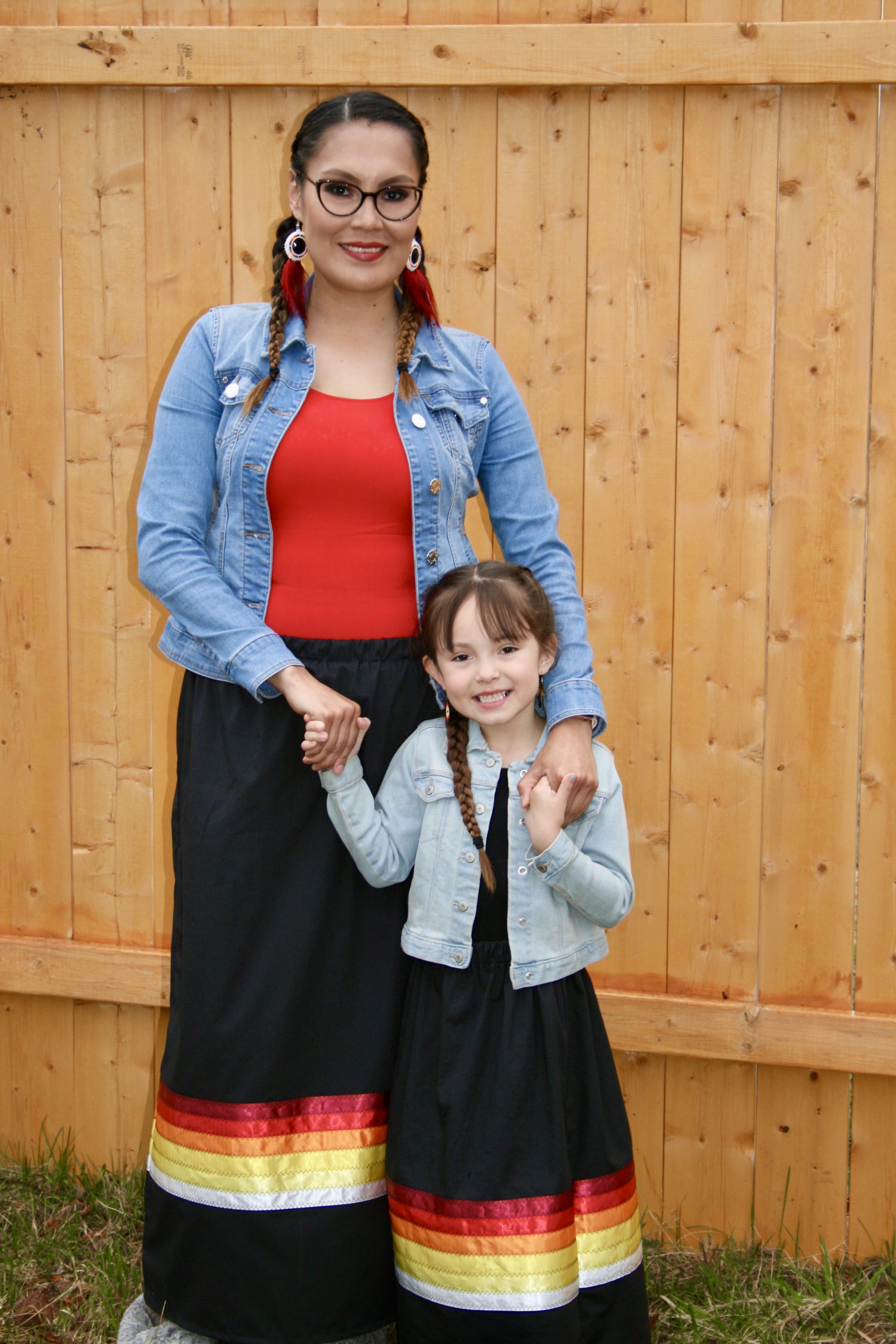
Cora becomes emotional when she talks about becoming a Dene teacher and how proud it would make her grandfather John Lemaigre, who raised her.
As a child, he was forced to attend an Indian residential school where students were punished for speaking their language. But the Dene hunter and carpenter clung to his language and his love of education, and passed it on to his family.
“If he were here right now, he would be gloating, jumping with joy that I have my own classroom,” Cora said.
She’s also teaching at home.
Cora didn’t speak Dene to her own daughter, Sophia, 5, when she was a baby.
She regrets that. Now, she’s trying to make up for lost time.
“Who are we as a Dene people if we do not speak our Dene tongue?” she said.
Her little girl can recite Dene words for colours and animals, but Cora is teaching her that Dene is a language of “storytelling.”
Those stories are a gift that she wants to give her daughter and all the other children who will pass through her classroom in the years to come.
